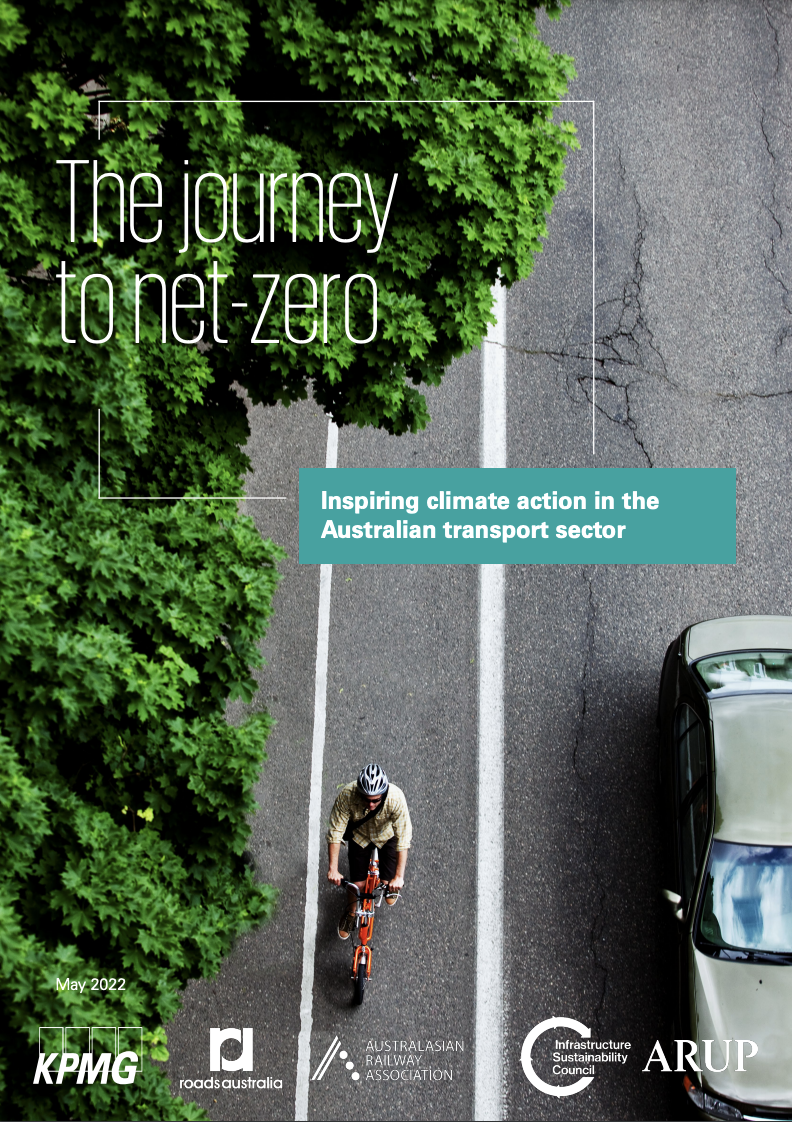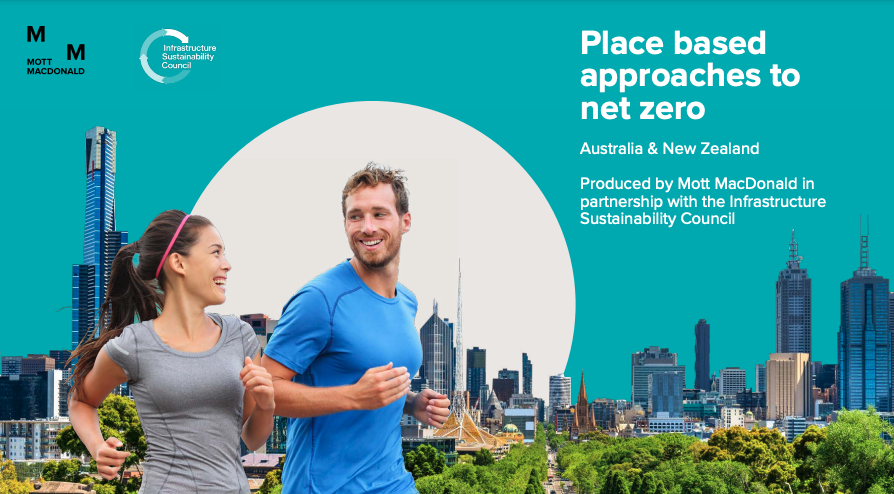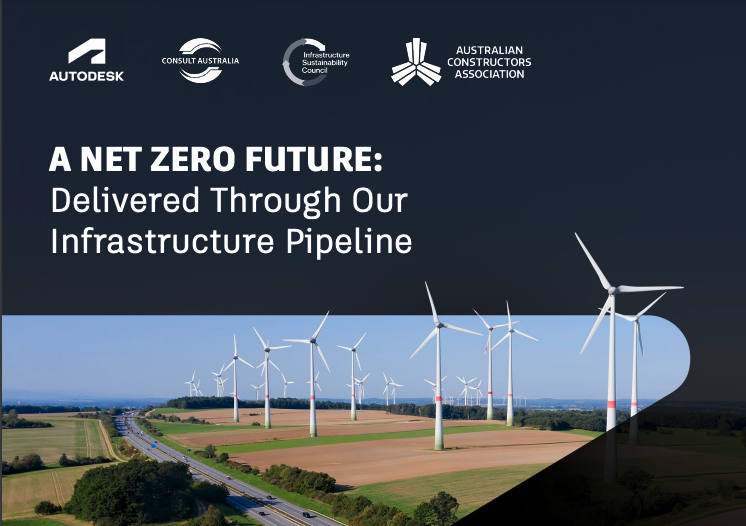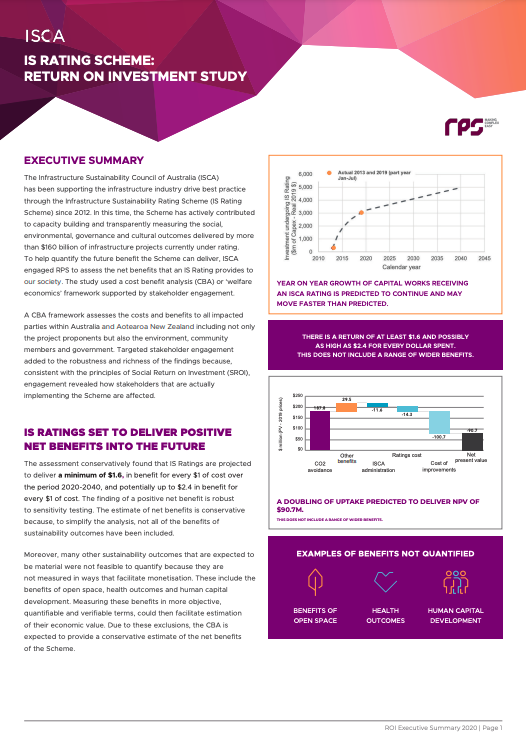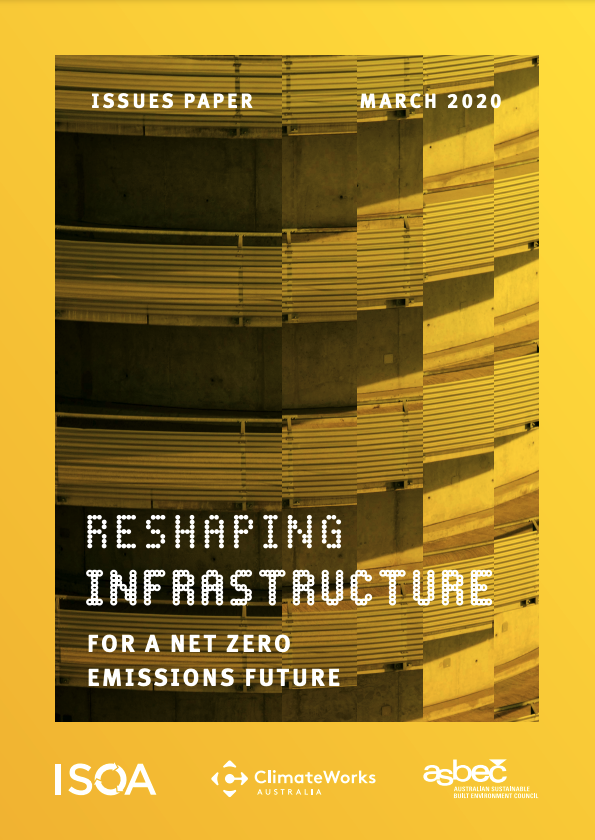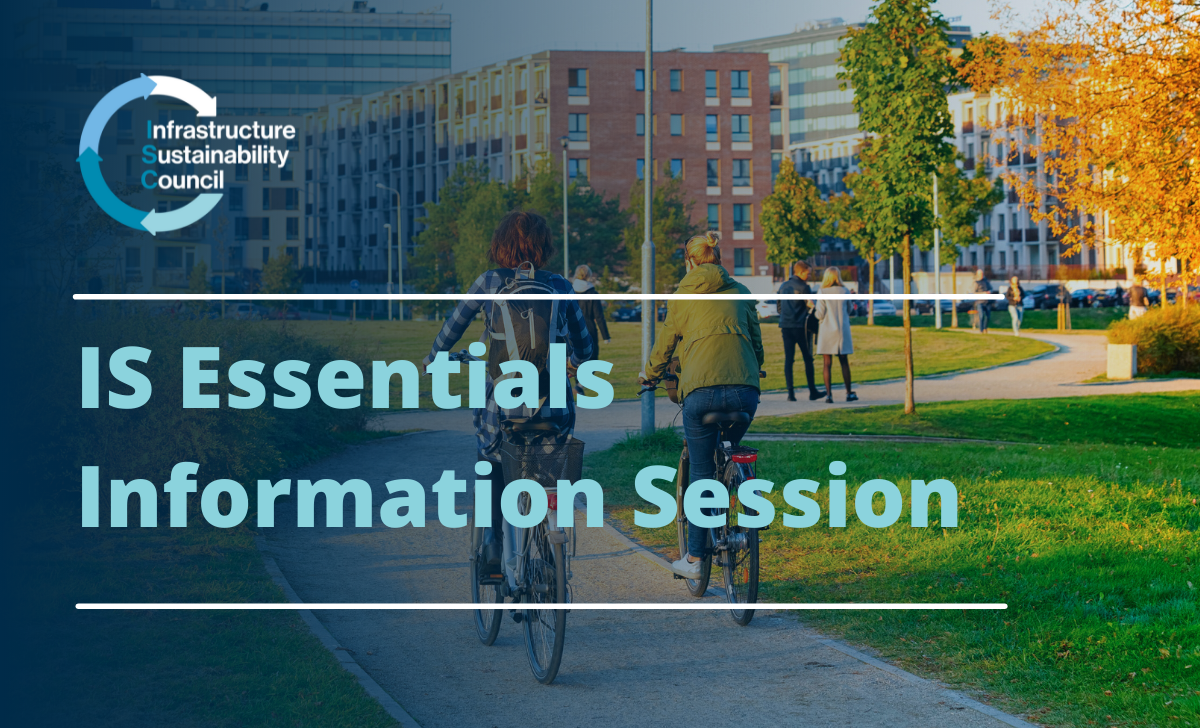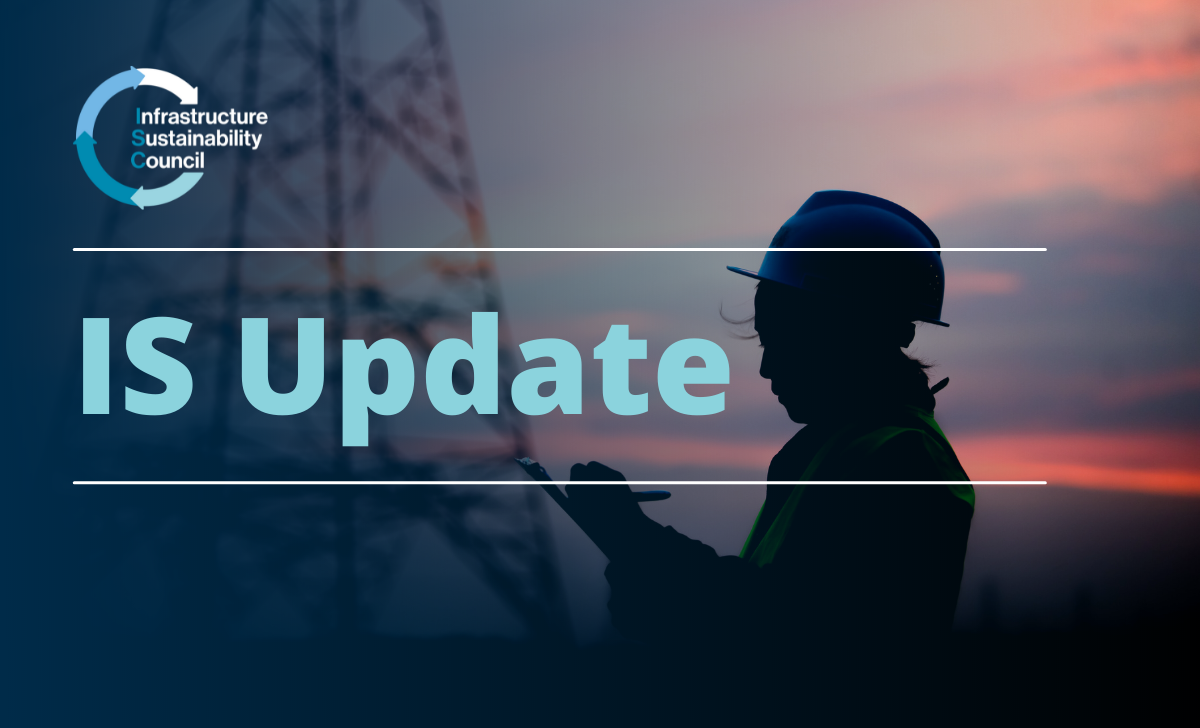A journey to net zero presents a compelling case for a great opportunity to change the way we approach out transport sector, and indeed our towns and communities. It is a ‘call to action’ for the industry to stop and rethink the way we approach transport in Australia. It presents an opportunity for the industry to come together to collaborate, ideate and explore new methods, approaches, and tools to improve the impact our industry has on society, the environment, our culture, and climate.
Delivered as part of an industry-first partnership between the Australasian Railway Association (ARA), Infrastructure Sustainability Council (ISC) and Roads Australia (RA) and includes 46 recommendations to accelerate decarbonisation in the sector. Authored by KPMG and sponsored by Arup, the report analysed local and global examples of leading best practice and features 29 case studies demonstrating existing technology and strategies for carbon reduction.
The report identified five key areas of action to drive action and support the sector’s journey to net-zero:
- Create a national, strategic approach to transport and infrastructure, with a focus on placemaking to meet the community’s long-term needs
- Introduce policies and investment that promote the development of efficient, sustainable, and resilient transport systems, including a move to ensure all new infrastructure projects incorporate net zero emissions targets
- Enable collaboration, capacity building and education at all stages of the process and advocate for new approaches to procurement
- Implement governance structures, processes and approaches to drive transparency and sound decision making to support the decarbonisation of transport systems
- Adopt and promote technology solutions that optimise asset design, construction and operation of road and rail fleets
Simon Morgan, Director Corporate Affairs – Roads Australia – 0403 477 131
Joeley Pettit, Director, Corporate Services and Corporate Affairs – Australasian Railway Association – 0407 061 421
Laura Harkins-Small, General Manager, Advocacy – Infrastructure Sustainability Council – 0423 058 183

